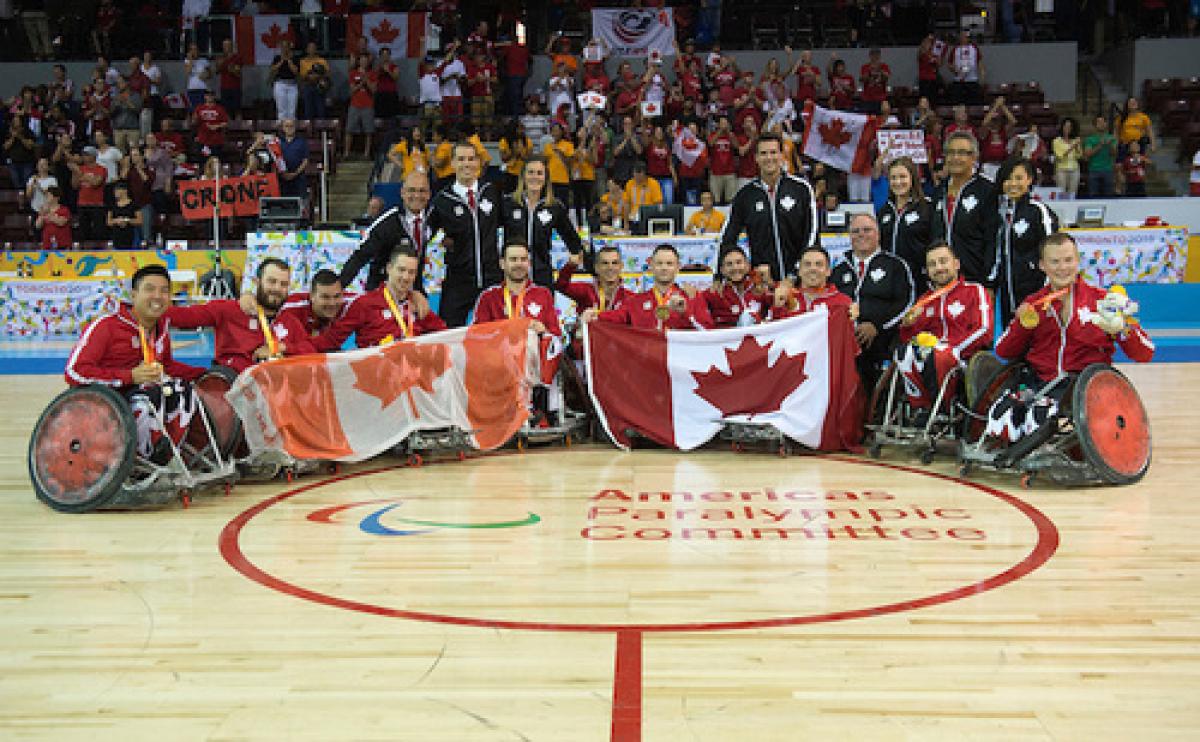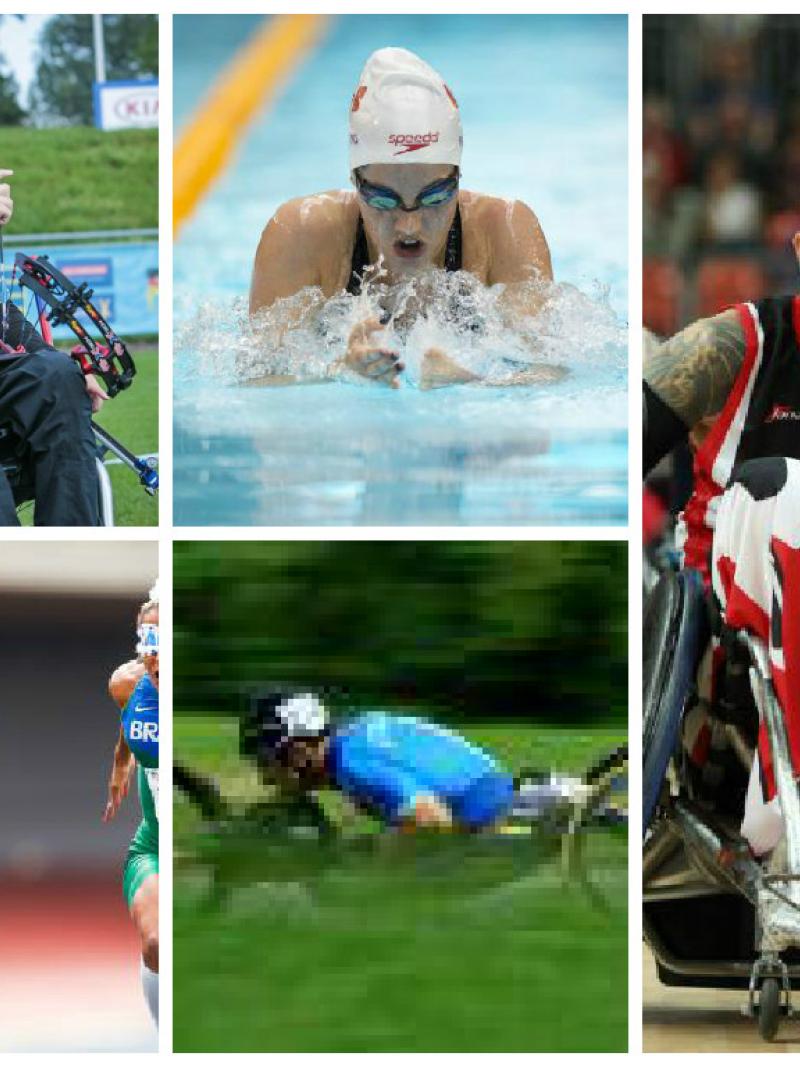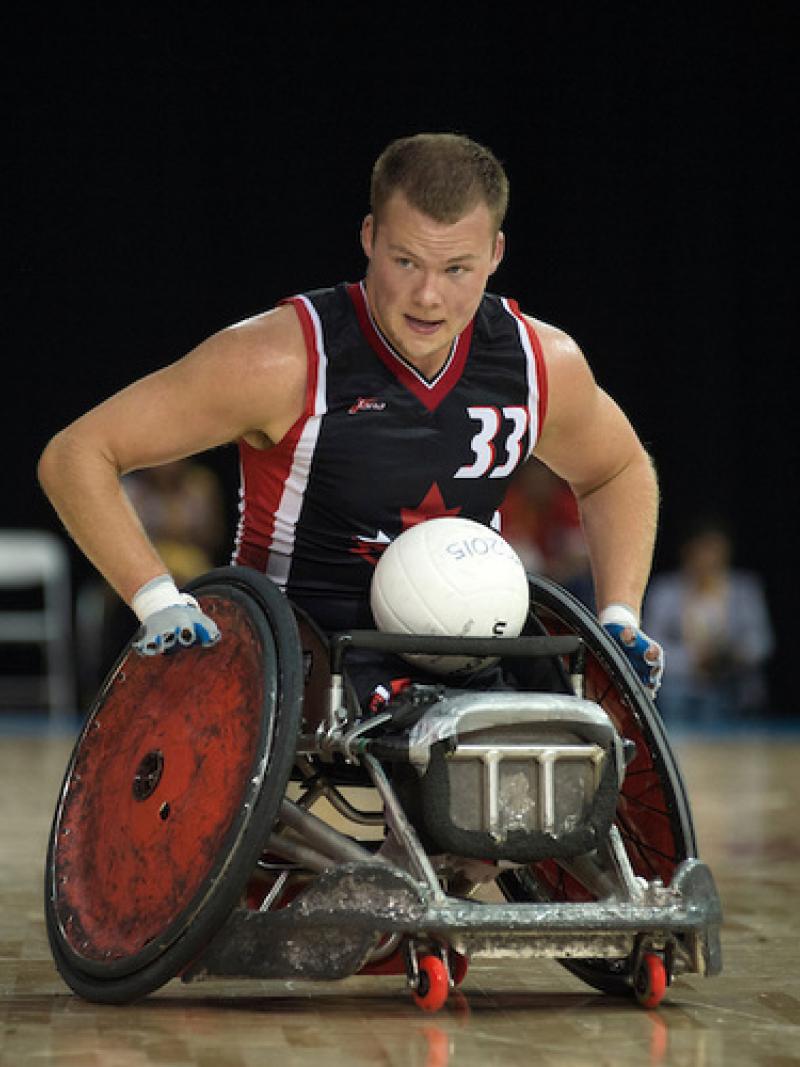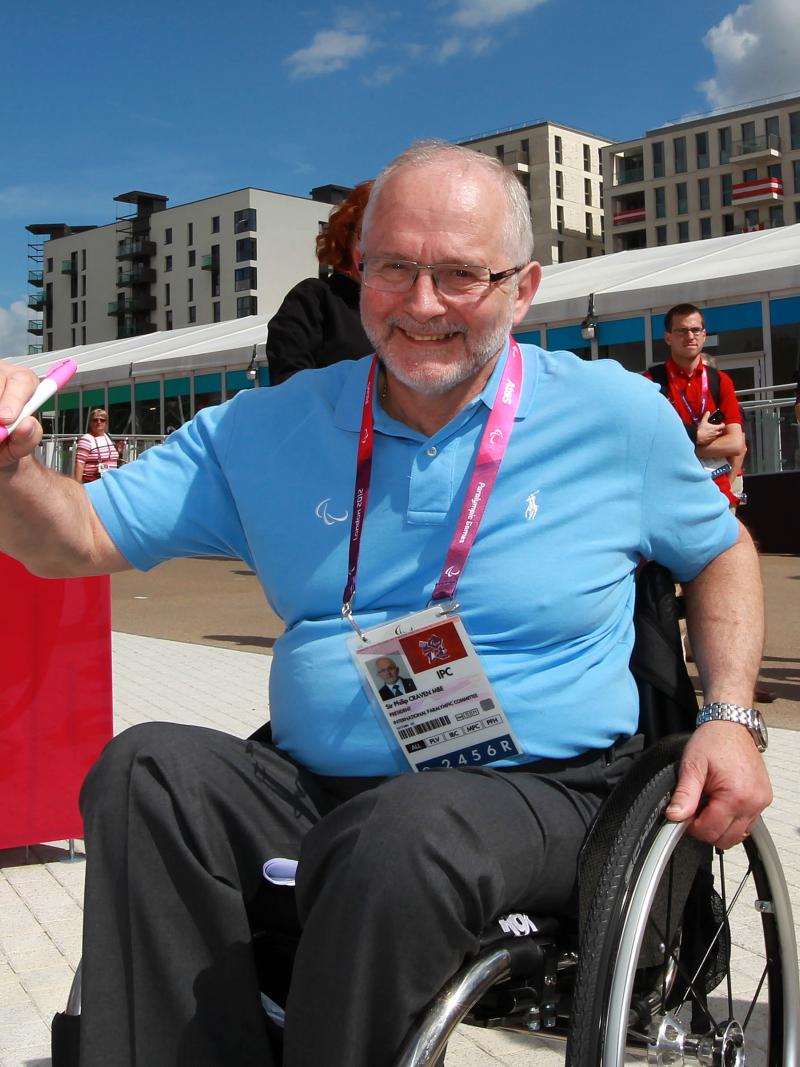Caldwell’s return key for Team Canada
The wheelchair rugby player went from not making the team’s Worlds roster to becoming a starter at Toronto 2015. 09 Sep 2015
Canada's wheelchair rugby team defeated the USA 57-54 in August’s Toronto 2015 Parapan American Games.
“Then you add in that with the [gold medal] win, and we also clinched our spot in Rio next year, which made it a real satisfying win for our team.”
Canada have cemented themselves as the No. 1 team in the Americas zone and look to upgrade that status a year from now, when the Rio 2016 Paralympic Games begin.
One reason behind their success was the return of Cody Caldwell to the international scene, as he most recently helped Canada defeat the USA 57-54 in August’s Toronto 2015 Parapan American Games.
The 2.0 classified player came into the sport after a diving accident in 2008 left him a quadriplegic. He entered a shallow part of a lake and hit the bottom head first, breaking his C6 and C7 vertebrae.
Caldwell had been in the Canadian squad for the 2014 Canada Cup, 2013 Wheelchair Rugby Challenge in Denmark and the 2013 Americas Zone finals. His first multisport event, however, was Toronto 2015, where a roster spot for him was uncertain.
“I put in a lot of work over the last couple years and tried to make the World Championship team last year, but unfortunately I was left off,” Caldwell said.
“I took that disappointment and used it as motivation to not let that happen again this year with Toronto.”
Team Canada finished the best offence in the tournament, averaging 65.5 goals per game. Caldwell, who became a regular starter, contributed a modest 4.5 goals per game, and his court presence was felt on the defensive end.
The most impressive statistic for the Canadians was their ability to produce steals, finishing the tournament with 13, an average of 1.8 per game, and only having one go against them.
“I had some good dialogue with our coaching staff with what I had to work on and continue to improve on over the year, and we have a hard working team, which is always pushing each other to get better.”
Caldwell said training and learning from Paralympic veterans Dave Willsie and Garett Hickling on a daily basis was big in his performance at Toronto 2015, where Canada lost in overtime to the USA during tournament play but bounced back in the finals.
“Losing always leaves a sour taste in your mouth, but we moved on to our semi-final knowing that if we took care of Brazil, we would get another chance to beat the USA in the gold medal game,” Caldwell said.
“Then you add in that with the [gold medal] win, and we also clinched our spot in Rio next year, which made it a real satisfying win for our team.”
The No.1 ranked Australians appear to be Canada’s biggest threat for Paralympic gold. But Team USA may also be eyeing revenge from the loss in August.
“I think Australia has earned the right to say they are the country to beat heading into Rio after winning in London and the World Championships last year in Denmark,” Caldwell said.
“Knowing that we are qualified for Rio will definitely help us focus and prepare for it [Rio 2016] better than if we had to go to the new last chance qualifier next year,” Caldwell added. “That being said, we know how competitive it is right now within the top of the rankings, so we cannot go in overconfident or overlook an opponent because we can get put in our place really quickly.”
Canada will have a chance to match up against a handful of the world’s top ranked nations, including Australia, when the World Wheelchair Rugby Challenge gets underway on 12 October in London, Great Britain.

 Facebook
Facebook
 Instagram
Instagram
 Twitter
Twitter
 Youtube
Youtube
 TikTok
TikTok
 Newsletter Subscribe
Newsletter Subscribe



